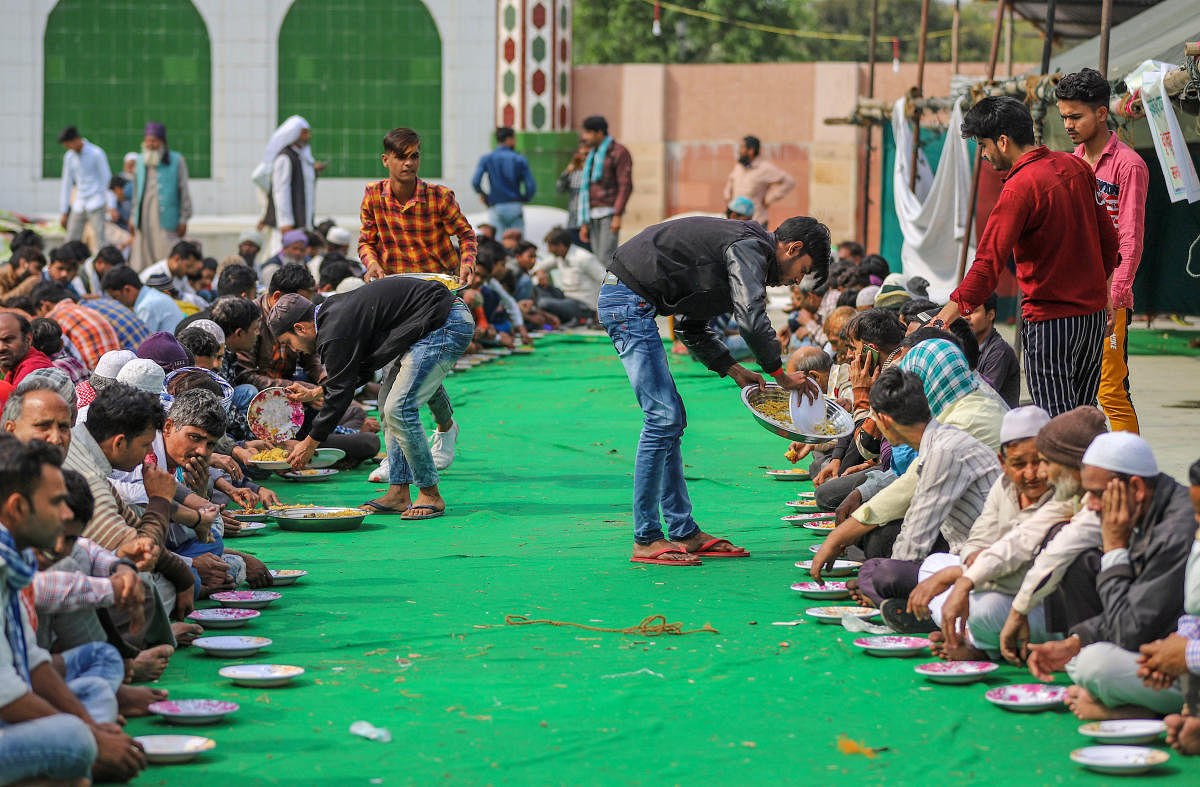
They have been flooded with all kinds of queries every day, but volunteers, lawyers and doctors at a relief camp in northeast Delhi are at a loss of words when asked the most difficult question: "When can I go back home?"
Riot-affected families at the eidgah-turned-relief camp in Mustafabad have tried returning to their houses, only to be turned back by paramilitary personnel, Delhi Minorities Commission (DMC) member Anshu Anthony said.
"Wait till Holi gets over, they are being told," according to volunteers and members of civil society organisations working at the camp.
Security personnel have been telling them to wait till the festival of colours is over, considering that some elements may try to incite violence during the occasion, Anthony said.
Waseem Ahmad, 29, said residents had welcomed back the riot-affected people in some areas.
"They have been encouraging us to offer namaz in our mosque," Ahmad said. "A few of us went back to our houses, but we came back."
He underlined that one can stay there during the day, but it is "impossible" to spend the night.
The Delhi government has maintained that 53 people were killed and over 200 injured in the communal violence that broke out at Jaffrabad, Maujpur, Chand Bagh, Khureji Khas and Bhajanpura areas of northeast Delhi.
Several teams of lawyers, doctors, therapists and volunteers have been camping at the eidgah to provide all necessary help to the affected people nursing injuries and battling mental trauma.
"There is anxiety in the air," Laik Ahmad from the Doctors Unity Welfare Association said.
Ahmad said people came to the NGO volunteers with all kinds of questions, relating to FIRs, documents, damage claims and missing persons, among others.
"But the most difficult question is, 'when can we go back?'. How do I answer this?" he asked.
Members of the Delhi Minorities Commission contributing to relief measures at the eidgah have been providing counselling to the affected people and helping children deal with stress.
"Several students have lost their books in fires," Ankita Upreti from the Self-Employed Women's Association said. "Some have lost their family members. They cannot prepare for board exams in such an atmosphere."
She recounted that many children had been asking how fellow students would treat them in schools.
"Some ask if they will ever be able to return home," Upreti said, adding that they tried to be as positive as they can while replying to such queries.
Firdaus, 39, said her daughter Muskaan, who lost all her books in the fire that gutted her house, had been preparing for board exams with the help of a mobile phone.
"The books got charred in the fire. Luckily, her hall ticket (for exam) was saved. Please do something," she told a volunteer.
DMC member Anastasia Gill said after permission of their families, around 10 students, from classes X and XII, had been sent to the Vidyajyoti College of Theology in north Delhi to prepare for exams.
Anthony underscored that the violence had impacted all, but children suffered the most, saying the kids were afraid to go to school.
Psychologists have been spending time with these children and engaging them in various activities. The fight against trauma has to be fought in stages, Gill said.
"When we asked the children to draw, a boy painted a house, trees, and roads littered with stones," Gill said. "When we asked him what it was, he said 'patthar' (stone)."